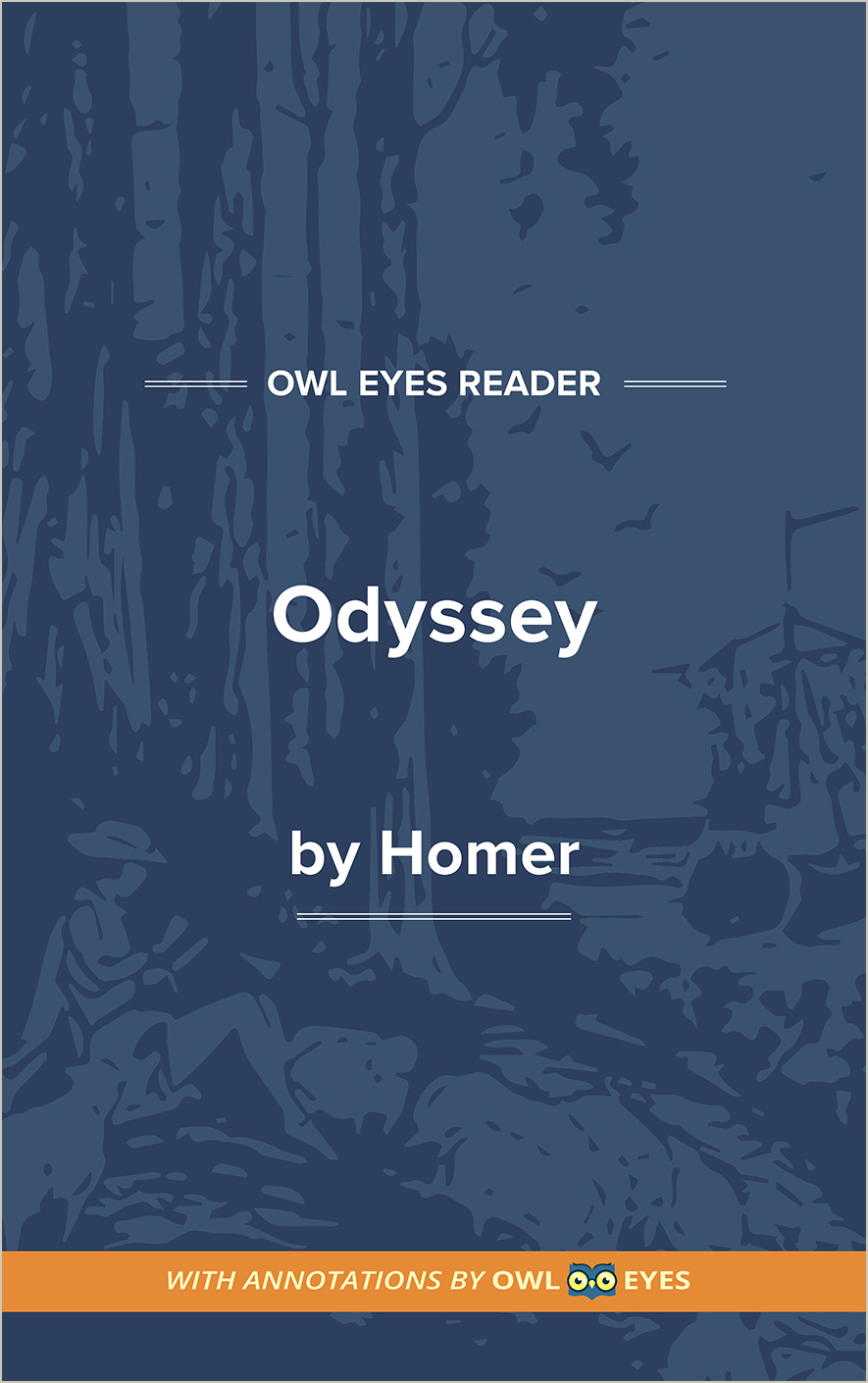Analysis Pages
Plot in The Odyssey
Plot Examples in The Odyssey:
Book I
🔒"How can I forget Odysseus than whom there is no more capable man on earth, nor more liberal in his offerings to the immortal gods that live in heaven?..." See in text (Book I)
"Laertes..." See in text (Book I)
"a beautiful golden ewer..." See in text (Book I)
"Poseidon..." See in text (Book I)
Book II
🔒"against the time..." See in text (Book II)
"scandalous goings on..." See in text (Book II)
Book IV
🔒"the ruin of a stately mansion..." See in text (Book IV)
"but they did not know what was going to happen..." See in text (Book IV)
"She drugged the wine with an herb that banishes all care..." See in text (Book IV)
"before we got back here..." See in text (Book IV)
Book VI
🔒"she also made the hair grow thick on the top of his head..." See in text (Book VI)
"I want to take all our dirty clothes to the river and wash them..." See in text (Book VI)
Book IX
🔒"black wine..." See in text (Book IX)
Book X
🔒"groaning and tearing their hair..." See in text (Book X)
"I met Hermes with his golden wand..." See in text (Book X)
"He snatched up one of them..." See in text (Book X)
"Artacia..." See in text (Book X)
Book XI
🔒"He has to entertain largely..." See in text (Book XI)
"carry it on and on..." See in text (Book XI)
"and by Telemachus who is the one hope of your house..." See in text (Book XI)
"weeping and in great distress..." See in text (Book XI)
Book XII
🔒"you will return late, in bad plight, after losing all your men..." See in text (Book XII)
Book XIII
🔒"I will begin by disguising you..." See in text (Book XIII)
"Athena had made it a foggy day..." See in text (Book XIII)
"Thus did the chiefs and rulers of the Phaeacians pray to king Poseidon..." See in text (Book XIII)
Book XIV
🔒"I will tell you all about it..." See in text (Book XIV)
Book XV
🔒"held them for a whole year..." See in text (Book XV)
"Elis, where the Epeans rule..." See in text (Book XV)
"Pherae, where Diocles lived..." See in text (Book XV)
"an eagle with a great white goose..." See in text (Book XV)
"in the Strait between Ithaca and Samos..." See in text (Book XV)
Book XVII
🔒"and so will Odysseus..." See in text (Book XVII)
Book XVIII
🔒"commanding figure..." See in text (Book XVIII)
Book XIX
🔒"I will not spare you..." See in text (Book XIX)
Book XXII
🔒"for he remembered every one of them..." See in text (Book XXII)
"but there was neither shield nor spear..." See in text (Book XXII)
Book XXIII
🔒"a boar to Poseidon..." See in text (Book XXIII)
Book XXIV
🔒"between the two contending parties..." See in text (Book XXIV)
"the fair golden wand..." See in text (Book XXIV)
"king Apheidas..." See in text (Book XXIV)
"Dolius..." See in text (Book XXIV)
"THEN..." See in text (Book XXIV)

